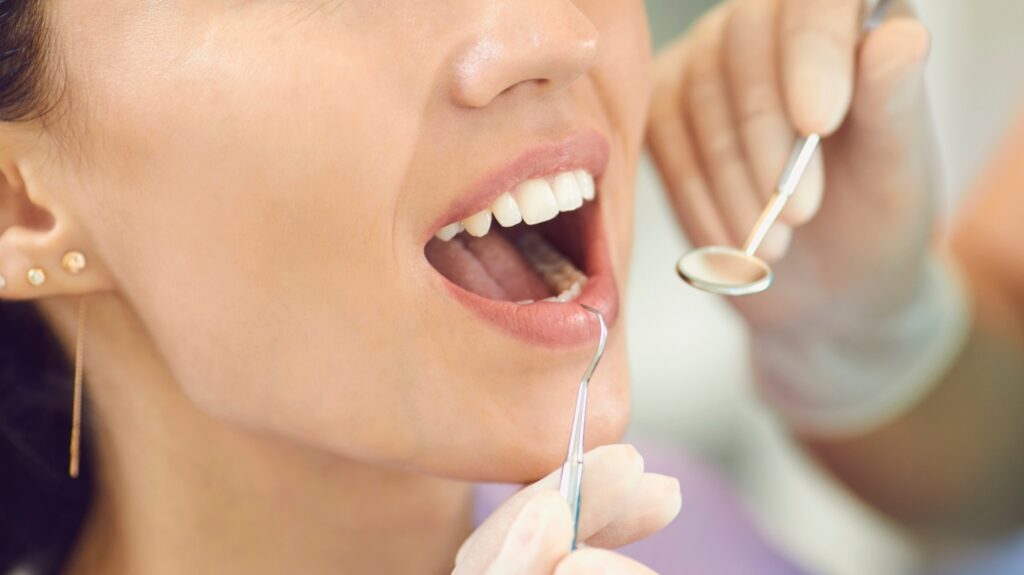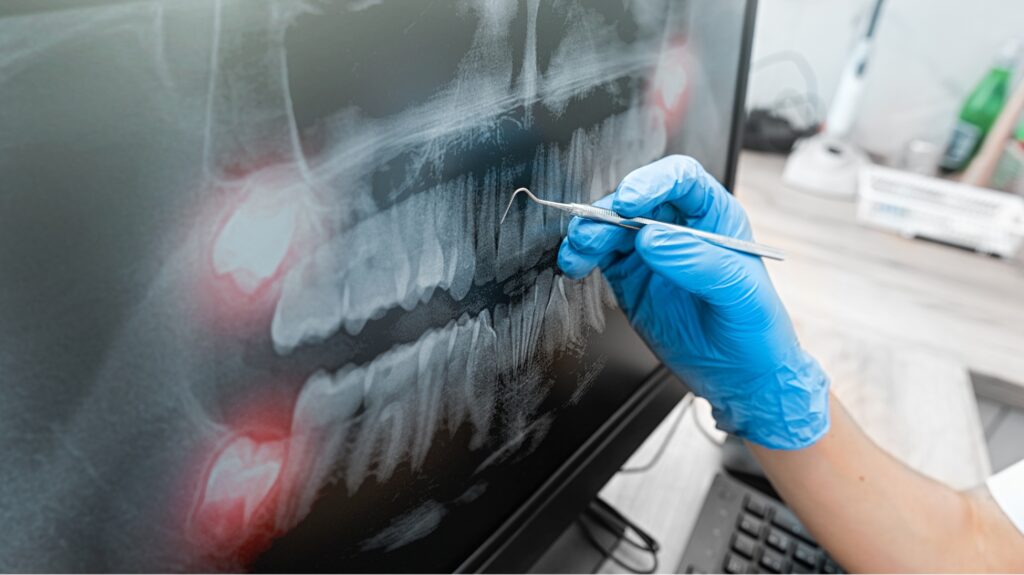Taking care of your teeth and gums isn’t just about having a bright smile. Good oral health plays a significant role in your overall well-being. From preventing painful dental issues to boosting your confidence, regular dental care makes a difference.

Why Oral Health Matters
Your mouth is the gateway to your body. Poor oral hygiene can lead to cavities, gum disease, and infections. But did you know it can also increase your risk for serious health problems like heart disease, diabetes, and respiratory infections?
When bacteria build up in your mouth, they can enter your bloodstream, affecting other parts of your body. That’s why regular dental check-ups are more than just a cosmetic concern. Taking care of your teeth is an investment in your overall health.
The Impact on Quality of Life
- Physical Health: Healthy teeth and gums prevent pain, discomfort, and inflammation. Severe toothaches or infections can even lead to hospital visits. Chronic oral health problems may result in fatigue, malnutrition, and weakened immunity. Additionally, untreated infections in the mouth can spread to other parts of the body, leading to serious medical complications.
- Mental Well-Being: Confidence in your smile boosts self-esteem and improves social interactions. People with dental problems often avoid smiling, speaking, or socializing, leading to isolation and lower self-confidence. Poor oral health can also contribute to stress and anxiety, particularly in social or professional settings.
- Nutrition: Poor dental health can make it harder to chew, leading to a restricted diet and potential nutrient deficiencies. This may result in digestive issues, malnutrition, and a weakened immune system. Missing teeth or painful gums can also discourage individuals from eating certain foods, further limiting their dietary choices.
- Speech and Communication: Missing or damaged teeth may impact your ability to speak clearly. Speech impairments can hinder personal and professional relationships, impacting career and social growth. Corrective treatments like dentures, implants, or orthodontics can help restore confidence in speech and appearance.
How Poor Oral Health Can Lead to Other Issues
- Infections and Inflammation: Oral bacteria can enter your bloodstream, leading to systemic inflammation that may contribute to cardiovascular disease and respiratory problems. Periodontitis, an advanced form of gum disease, has been linked to heart disease and stroke.
- Diabetes Complications: Gum disease may worsen diabetes by affecting blood sugar control. People with diabetes are also more prone to infections, making dental care crucial.
- Pregnancy Risks: Pregnant women with gum disease face a higher risk of preterm birth and low birth weight. Hormonal changes during pregnancy also make gums more sensitive and prone to inflammation. Regular dental check-ups during pregnancy are highly recommended.
- Digestive Problems: Improper chewing due to missing or damaged teeth can lead to digestive issues. Poor digestion reduces nutrient absorption, impacting overall health. In severe cases, individuals may experience weight loss and nutritional deficiencies.
Common Dental Issues and Their Effects
- Cavities: Untreated cavities can lead to severe pain, infections, and tooth loss. Cavities can also spread to neighboring teeth, causing more significant damage. Regular dental visits help detect cavities early, preventing further damage.
- Gum Disease: Early signs include bleeding gums, swelling, and bad breath. Without treatment, gum disease can lead to bone loss and tooth loss. Deep cleanings, proper oral hygiene, and sometimes medications can manage gum disease effectively.
- Tooth Sensitivity: Enamel erosion exposes nerves, making it painful to eat or drink hot, cold, or sweet foods. Sensitivity may also indicate underlying problems like cavities or gum recession. Specialized toothpaste and dental treatments can provide relief.
- Bad Breath (Halitosis): Often caused by poor oral hygiene, it may indicate gum disease or infections. Persistent bad breath can be socially isolating and embarrassing. Regular cleanings and good oral hygiene habits can alleviate bad breath.
- Tooth Loss: Losing teeth can affect your appearance, chewing ability, and speech, impacting self-confidence and daily life. It may also lead to bone loss in the jaw, causing further dental issues. Dental implants, dentures, and bridges are common restorative solutions.
Importance of Dental Panoramic X-Rays
For a complete picture of your oral health, dental panoramic X-rays are an excellent diagnostic tool. They capture a broad view of your teeth, jaw, and surrounding structures in one image. Dentists use them to detect hidden issues like impacted teeth, infections, cysts, tumors, and bone abnormalities.
Panoramic X-rays are particularly useful for planning treatments like braces, dental implants, and extractions. They provide a clear view of the entire mouth, helping dentists make more accurate diagnoses.
X-rays can help spot problems early, preventing more severe issues and reducing the need for invasive treatments. Dental clinics in the Philippines often provide affordable panoramic X-rays, making it easier to stay on top of your oral health.

Additional Preventive Dental Care Measures
Dental clinics offer several preventive treatments that go beyond brushing and flossing. These services are designed to detect and prevent dental issues before they become serious. Some common preventive care options include:
- Dental Cleanings and Scaling: Professional cleanings remove plaque and tartar buildup that cannot be removed with brushing alone. Scaling helps prevent cavities, gum disease, and bad breath. Dentists may also polish your teeth to remove stains and improve appearance.
- Fluoride Treatments: Fluoride strengthens tooth enamel and prevents decay. It is often recommended for children but can benefit adults prone to cavities. Many clinics offer fluoride varnishes or gels during check-ups.
- Dental Sealants: Sealants are thin, protective coatings applied to the back teeth to prevent cavities. They are especially helpful for children but can also benefit adults with deep grooves in their molars.
- Oral Cancer Screenings: Dentists often check for early signs of oral cancer during routine exams. Early detection improves treatment outcomes. Screenings are quick, painless, and vital for early diagnosis.
- Bite and Jaw Assessments: Detecting bite issues early can prevent problems like teeth grinding, jaw pain, and Temporomandibular Joint (TMJ) disorders. Orthodontic treatments, night guards, or other interventions can correct these problems.
- Nutritional Counseling: Dentists may offer dietary advice to promote oral health. Reducing sugar intake and maintaining a balanced diet can significantly lower your risk of cavities. Eating crunchy fruits and vegetables can also help clean teeth naturally.
- Desensitizing Treatments: For those with sensitive teeth, dentists may apply special treatments to reduce discomfort and strengthen enamel. This can include fluoride varnish or bonding treatments to cover exposed dentin.
Need Help Finding Quality Dental Care?

Take Charge of Your Dental Health
Your smile is worth protecting. Prioritizing oral health improves not only your confidence but also your overall quality of life. Schedule your next dental appointment today, and keep your smile bright and healthy for years to come.
For guidance on accessing reliable dental care in the Philippines, reach out to Medical Case Management International. Your health deserves nothing less.
Leave a comment
Sign in to post your comment or sign-up if you don't have any account.